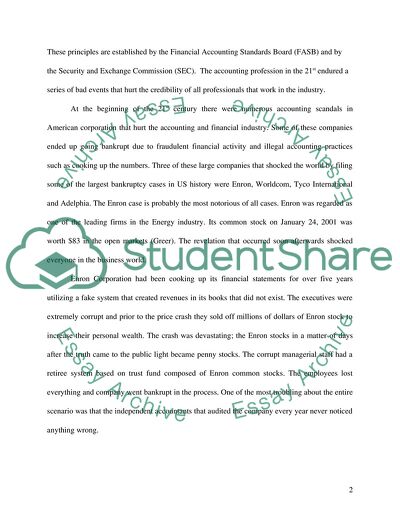
- Home
- Free Samples
- Premium Essays
- Editing Services
- Extra Tools
- Essay Writing Help
- About Us
- Studentshare
- Subjects
- Miscellaneous
- The Accounting Profession: Challenges and Opportunities
The Accounting Profession: Challenges and Opportunities - Essay Example

- Subject: Miscellaneous
- Type: Essay
- Level: Masters
- Pages: 4 (1000 words)
- Downloads: 0
- Author: clydemoen
Extract of sample "The Accounting Profession: Challenges and Opportunities"
Mr. Pacioli in his famous text Summa de Arithmetica, Geometria, Proportione et Proportionalite described a double entry system which ensured that financial information was recorded efficiently and accurately (Weygandt & Kieso & Kimmel 5). The accounting profession proliferated during the 19th century due to emergence of large corporation when the industrial revolution took off. Accountants represented the intermediaries that took control of the financial information to ensure there was a separation between the ownership and managerial staff of a company.
The profession continued to evolve in the 20th century. The financial services industry became very dependent of the work of accountants. Investors depended on the external information in particular the financial statements of public companies to make buy and sell decisions. The level of sophistication and complexity of the profession took off with the start of the information age and subsequent internet age in the 1980’s and 90’s. The workload and level of responsibility of accountants increased.
Managers started to rely more on them for advice about operational issues. The accounting profession is self regulated and accountants are expected to comply by the highest levels of ethical standards in their every day work. The logic utilized in accounting work is based on the general accepted accounting principles (GAAP). These principles are established by the Financial Accounting Standards Board (FASB) and by the Security and Exchange Commission (SEC). The accounting profession in the 21st endured a series of bad events that hurt the credibility of all professionals that work in the industry.
At the beginning of the 21st century there were numerous accounting scandals in American corporation that hurt the accounting and financial industry. Some of these companies ended up going bankrupt due to fraudulent financial activity and illegal accounting practices such as cooking up the numbers.
...Download file to see next pages Read More
- TERMS & CONDITIONS
- PRIVACY POLICY
- COOKIES POLICY